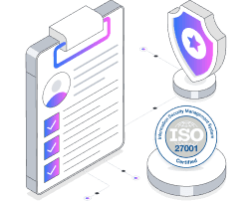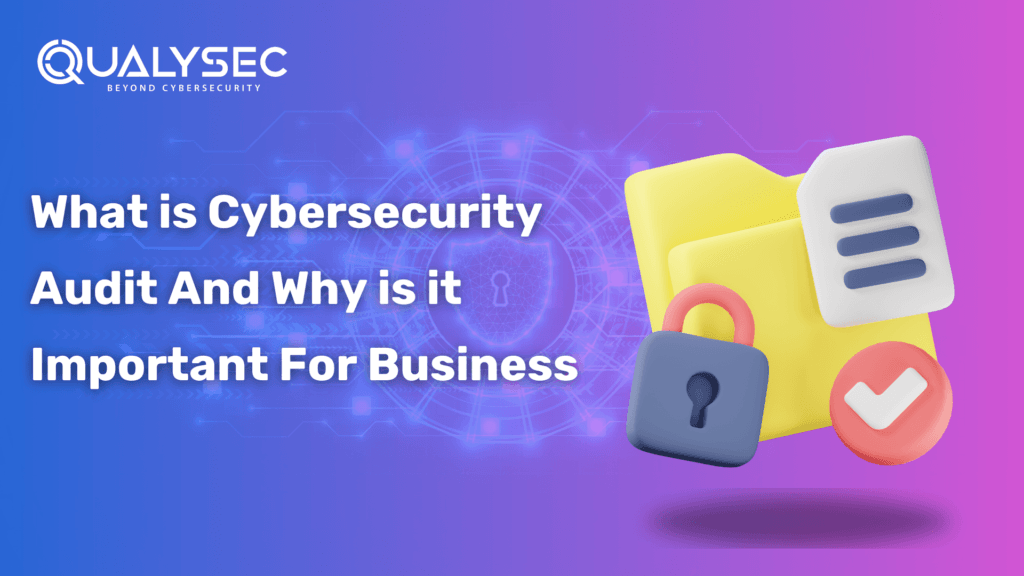Top 20 Cybersecurity Companies in Greece in 2025
The nation of Greece has long been celebrated for its magnificent history as well as its rewarding tourism industry. Still, it is now getting recognized in the tech world as a cybersecurity country on the rise. As the EU-driven data compliance initiatives and increasing digital transformation pose their effects, organizations are quite eager to find reliable Cybersecurity Companies in Greece to secure their infrastructures. Let’s take a look at the top 20 cybersecurity companies in Greece in 2025, like Qualysec Technologies, which offer end-to-end protection, innovation in security solutions, and specialized services. List of Top 20 Cybersecurity Companies in Greece 2025 1. Qualysec Technologies An expert cybersecurity service provider in Greece, Qualysec Technologies takes care of its clients’ security through advanced and tailored solutions. They can offer a huge range of expertise, such as comprehensive penetration testing, in-depth vulnerability assessment, and proactive managed security services. The company also offers robust security architectures for unique challenges. Qualysec aims to bring the best of both human expertise and AI-driven tools to help organizations deal with cyber threats and boost their cybersecurity measures. 2. NVISO Greece Their core offerings for their customers are threat detection, incident response, and SOC services that are monitored around the clock. Additionally, they offer red team and purple team simulations for testing and enhancing security postures. Furthermore, NVISO also provides cybersecurity consulting services, which aims to build up infrastructure and be ready for more advanced cyber threats. 3. Logstail Logstail is a company that primarily offers log management and security analytics services. Through various tools it offers, the company offers to capture, track, and measure log data across different systems and application components. Their platform facilitates real-time security event correlation, detection of anomalies, and compliance reporting. 4. Obrela Security Industries For Greece, Obrela offers managed detection and response (MDR) services for its clients. They come up with solutions such as continuous threat monitoring, cyber risk management, and breach simulation exercises. They use AI-driven analytics to give you the prediction of incident anticipation and response. In addition to vulnerability management and advanced threat hunting, they also have services for prominent cybersecurity challenges that are dynamic. 5. IBM Greece IBM Greece has a portfolio of top cybersecurity consulting firms. The consulting service they provide to businesses is their cybersecurity consulting practice, which helps them assess and reduce risk. In Greece, IBM also offers security tools ranging from SIEM (Security Information and Event Management), identity and access management, data protection solutions, as well as endpoint security solutions. 6. Cisco Greece Among the cyber security service provider Cisco Greece offers are the ones needed to secure enterprise networks. They are providing covering services of advanced firewalls, intrusion detection and prevention frameworks, secure access, however, like VPNs and ZT construct. As the second part, they also rolled out the cloud security tools and network to segment in Greece to aid organizations in communication and prevent the spread of threats or attacks. 7. Fortinet Greece Fortinet Greece is capable of providing integrated cybersecurity audit companies for networks, endpoints, and data systems. Next-generation firewalls, secure SD-WAN, endpoint detection response (EDR), and centralized security tools are part of their product ranges. The services are structured to enable businesses in Greece to deal with threats in the hybrid IT environment, from classic on-premises infrastructure to cloud-based systems. 8. Check Point Software Technologies Check Point provides several different cybersecurity services for enterprises and public sector organizations. Greece’s offerings from them include next-generation firewalls, intrusion prevention systems, secure remote access, threat prevention platforms, as well as mobile security solutions. They help organizations to secure their networks, endpoints, cloud environments, and users from sophisticated cyber threats. 9. Mandiant (Google Cloud) Google Cloud provides advanced cybersecurity solutions for small business to businesses and institutions in Greece through Mandiant, a part of its company. As its core services, they offer real-time threat intelligence, an incident response plan and execution, security validation, and a managed detection and response (MDR). Mandiant helps the organization see vulnerabilities, mitigate breaches, and build cyber resilience in the most complex IT environment. 10. AVG Technologies (Avast) They offer antivirus software in Greece and are a subsidiary of Avast. Antivirus protection, anti-malware solutions, internet security, email protection, and performance optimization tools are their services. AVG also offers cloud-based and on-premises cyber risk management solutions that provide businesses with identity protection, ransomware defense, and network security products. 11. Trust-IT Services Greece Digital and cybersecurity services to the public and private sector clients in Greece are offered by Trust-IT Services. Their services also include cybersecurity firms, GDPR support, IT governance, and digital risk assessments. On top of that, they help organizations with a digital transformation roadmap, cloud security planning, and implement safe ICT infrastructures based on the demands of a given sector. 12. Byte Computer S.A. Integrated IT services and focused on cybersecurity are offered to Greek enterprises by the Greek company Byte Computer S.A. Their portfolio for cybersecurity includes threat detection and response, data protection, security architecture design, endpoint security, as well as compliance security audit. In this regard, the company assists the clients in the implementation of secure IT frameworks to protect their digital assets and corporate systems. 13. Space Hellas S.A. They provide integrated IT and telecommunications services, a cybersecurity portfolio of network security, endpoint protection, threat intelligence, and security operations. As a part of their cybersecurity managed services, they help support public and private sector organizations in Greece to prepare for dealing with incidents, firewall configuration, SIEM integration, and vulnerability management. 14. SingularLogic SingularLogic delivers enterprise software and IT integration services. They have data protection, access control, endpoint security, risk assessment, and intrusion detection systems. Additionally, they offer companies in Greece the possibility to assist in complying with such implementations and in developing their secure digital transformation strategy for different business sectors. 15. Performance Technologies S.A. Performance Technologies S.A. provides IT infrastructure and cloud services – in the domain of cybersecurity, there are network protection, encryption, monitoring of the security, detection of threats. They do not






